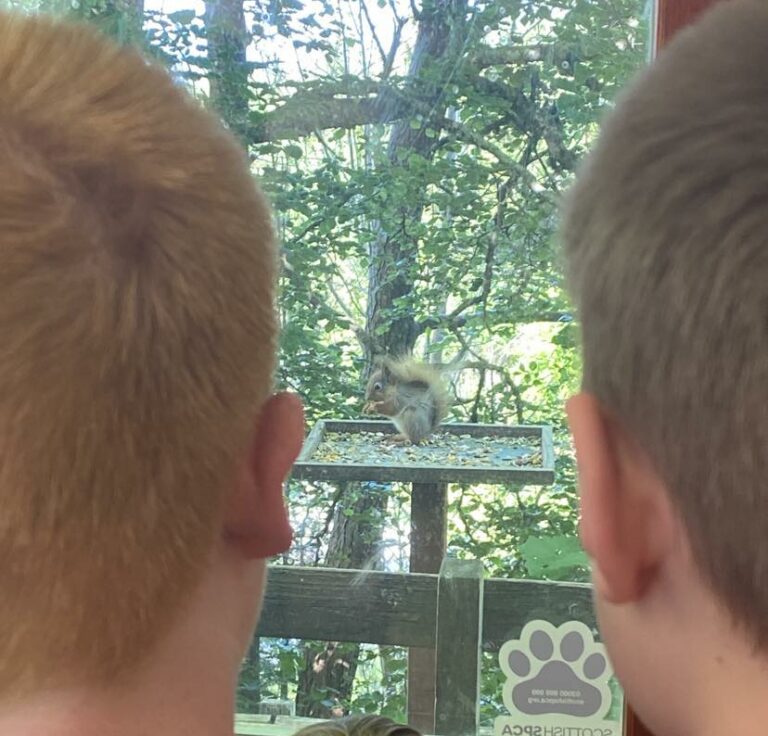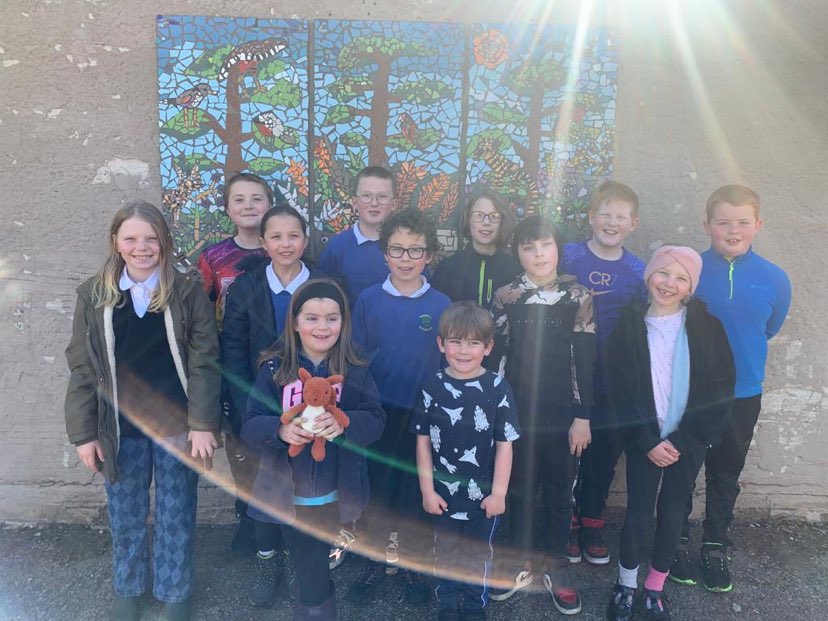OVO Foundation Nature Prize
Schools can win the cash to implement a community nature project. Schools from disadvantaged areas with high pupil premium are particularly encouraged to apply.
Applications open.


Rosehall Primary is a rural school of just 12 students in The Scottish Highlands. They applied for the OVO Foundation Nature Prize hoping to increase the local red squirrel population, by creating a designated area for them on the school grounds.
The students have been researching red squirrels, what habitats they like and what they like to eat. Through the research they found out that red squirrels are endangered, and the students wanted to do something to help. The prize money has helped to clear an area outside the classroom and buy some Red Squirrel friendly food; hazelnuts and monkey nuts.
The students have learned how to make their outdoor areas more wildlife friendly and how to be more resourceful, reusing items around them rather than ordering new things. One student had the idea of recycling an old bit of wood into a squirrel stand, which is now where the animals come to eat.
As the school is so small, the project has been a team effort. It has empowered the students to share their learning with parents and other local schools, encouraging others to create red squirrel friendly habitats. Winning a national competition also made the children feel more connected to the wider UK, and a part of something bigger.
Students now take part in Nature Scotland’s red squirrel count, reporting sightings via local Facebook groups. They have also been featured in the local paper for their winning idea. The project has improved students’ mindfulness and connection with nature, through the quiet moments taken to watch the squirrels when they come right outside the classroom.
A year 3 student says: “We felt happy and excited to help the squirrels”.

Since the area was created, they have seen new red squirrels, including at least one baby. The students have also taken part in activities such as bird watching, spotting sparrows, blue tits and even an eagle. The school hopes its next sustainability project will be putting up a polytunnel so students can grow and cook with their own food. Even in rural areas, it is important to make students more aware of nature and help them encourage local wildlife.
Ms Lesley Morrison, headteacher, said the benefits of the project included the chance for students to learn outside. She added: “It was really nice watching the children work together, and then that spread out into other areas. So, once they cleared the garden, they wanted to get a bug hotel. It was like a drop in water… you know, the ripple going outwards”.



Schools can win the cash to implement a community nature project. Schools from disadvantaged areas with high pupil premium are particularly encouraged to apply.
Applications open.
